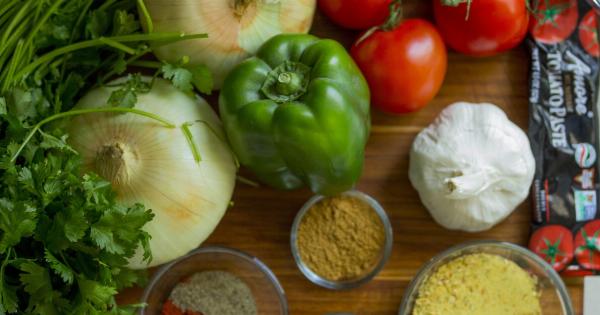Winter might be a season where many vegetables become scarce, but that doesn’t mean you need to sacrifice your health for convenience. In fact, winter can be a great time to try new produce that you may not have discovered before.
These ten winter vegetables are packed with nutrition and flavor, and they’re versatile enough to incorporate into a variety of dishes. So, get ready to nourish your body and taste buds with these winter veggies.
1. Kale
Kale has become a popular vegetable in recent years, and for good reason. It’s an excellent source of fiber, vitamins A, C, and K, and contains antioxidants that help fight inflammation in the body.
Additionally, kale has been shown to have cholesterol-lowering effects, making it a heart-healthy choice.
2. Brussels Sprouts
Brussels sprouts may have a bit of a bad reputation, but when cooked properly, they can be quite tasty. These small, cruciferous vegetables are high in fiber and vitamins C and K.
They also contain some unique compounds that have anti-cancer properties, such as sulforaphane.
3. Butternut Squash
Butternut squash is a type of winter squash that’s rich in nutrients like fiber, vitamin C, and potassium.
It also contains a healthy dose of carotenoids, which are plant compounds that have been linked to a reduced risk of certain cancers and improved immune function.
4. Beets
Beets are a root vegetable that are known for their deep, vibrant color. They’re an excellent source of fiber, folate, and manganese.
Beets have also been found to have anti-inflammatory properties and can help support healthy blood pressure levels.
5. Turnips
Turnips are a root vegetable that are similar in appearance to radishes. They’re a great source of vitamin C, fiber, and potassium. They’re also low in calories, making them a great choice for anyone looking to manage their weight.
6. Sweet Potatoes
Sweet potatoes are a type of root vegetable that are often associated with the fall and winter months. They’re a great source of fiber, vitamin A, and potassium.
They also contain antioxidants that have been linked to a reduced risk of chronic diseases, such as heart disease and cancer.
7. Parsnips
Parsnips are a type of root vegetable that are similar to carrots. They’re high in fiber, vitamins C and K, and are a good source of folate.
Parsnips also contain a unique plant compound called falcarinol, which has been found to have anti-cancer properties.
8. Cabbages
Cabbages are a type of cruciferous vegetable that come in a variety of shapes and sizes. They’re a great source of fiber, vitamin C, and vitamin K. Cabbages also contain compounds that have been shown to have anti-cancer properties.
9. Winter Squash
Winter squash encompasses a variety of different kinds of squash, including butternut, acorn, and spaghetti squash. They’re low in calories but high in nutrients like fiber, vitamin C, and potassium.
Winter squash also contains antioxidants that have been linked to a reduced risk of chronic diseases.
10. Carrots
Carrots are a root vegetable that are high in fiber, vitamin A, and potassium. They’re also a good source of antioxidants, which help protect the body from damage caused by harmful molecules known as free radicals.
Additionally, carrots have been found to have cholesterol-lowering effects, making them a heart-healthy choice.
Conclusion
Winter vegetables don’t have to be boring or bland. These ten options are packed with nutrients and can be used in a variety of recipes to add flavor and texture.
Whether you’re looking to support your immune system, manage your weight, or reduce your risk of chronic diseases, incorporating these winter veggies into your diet is a great way to prioritize your health.




























